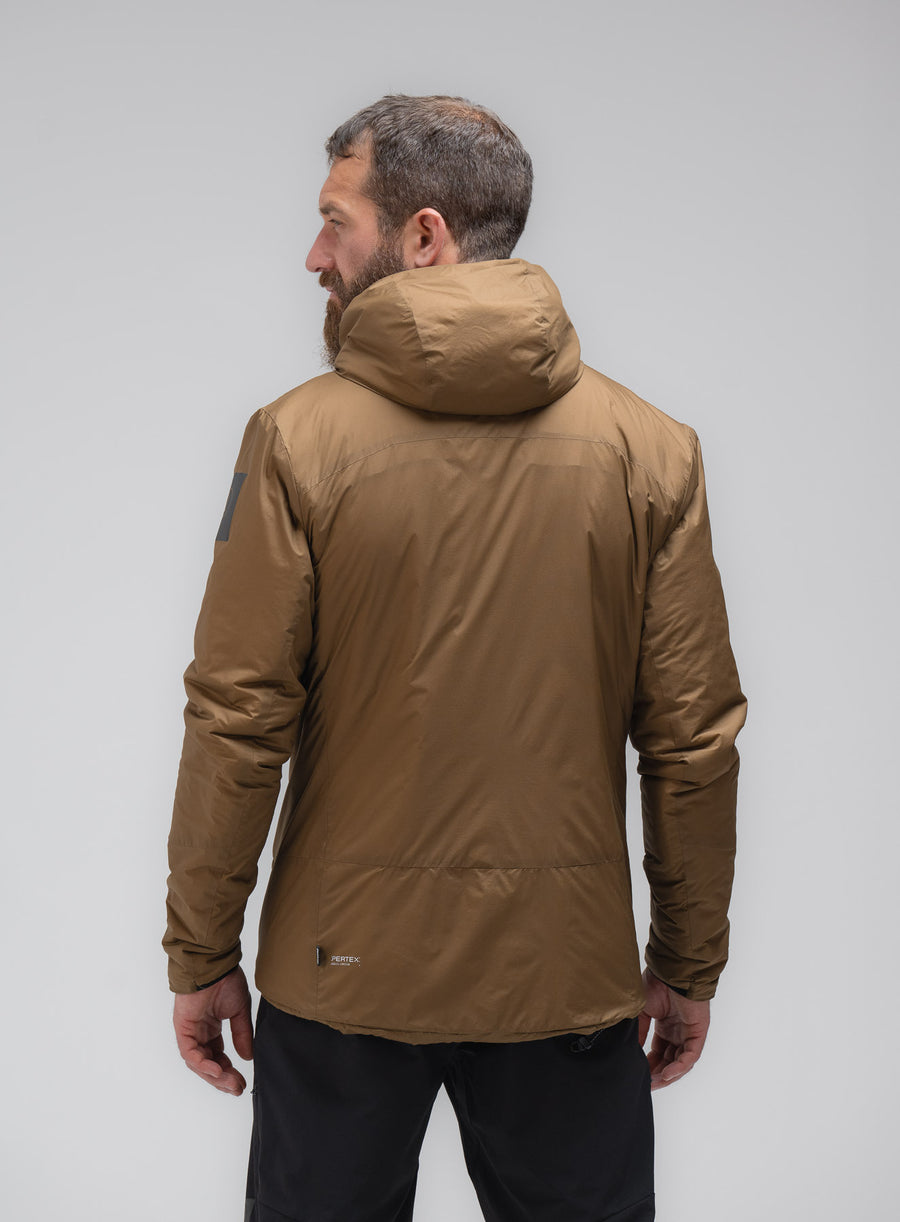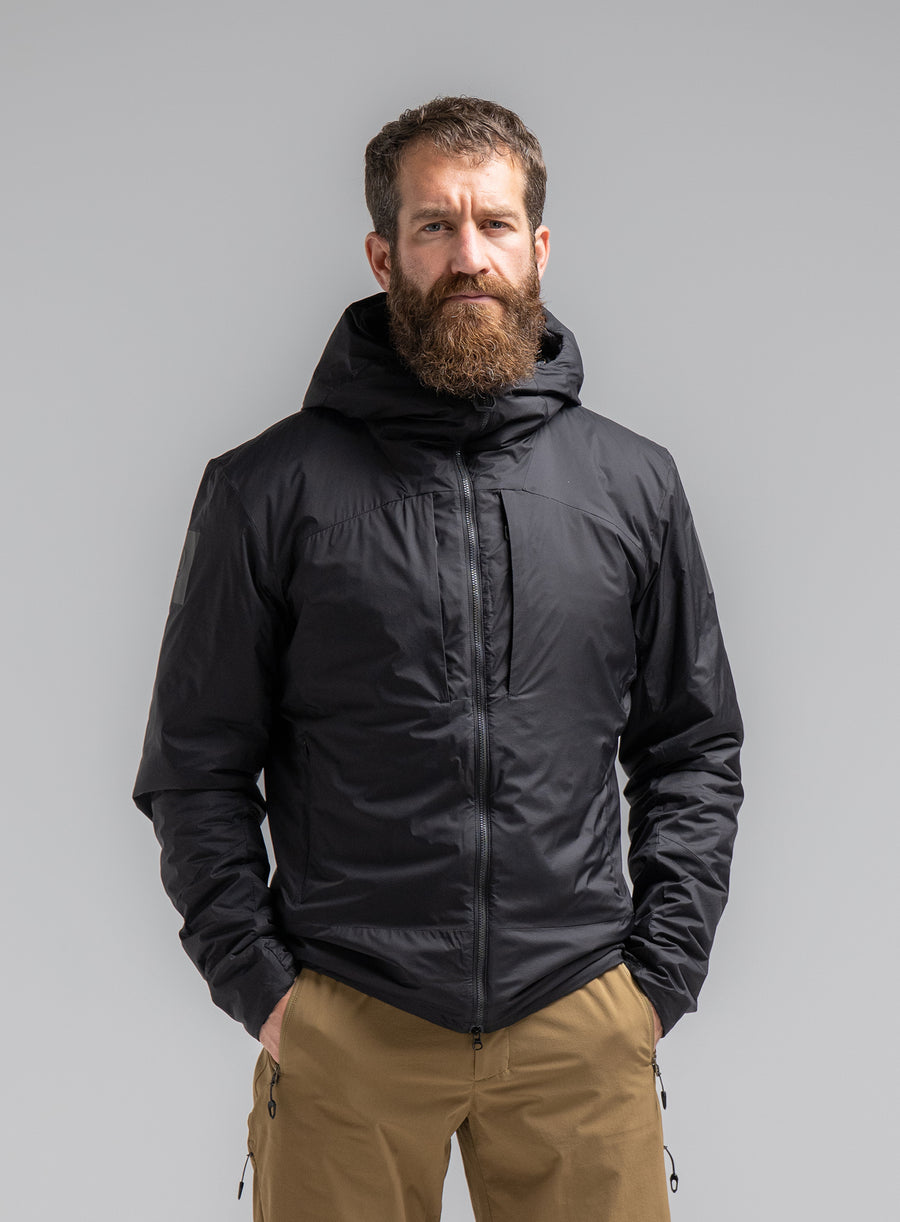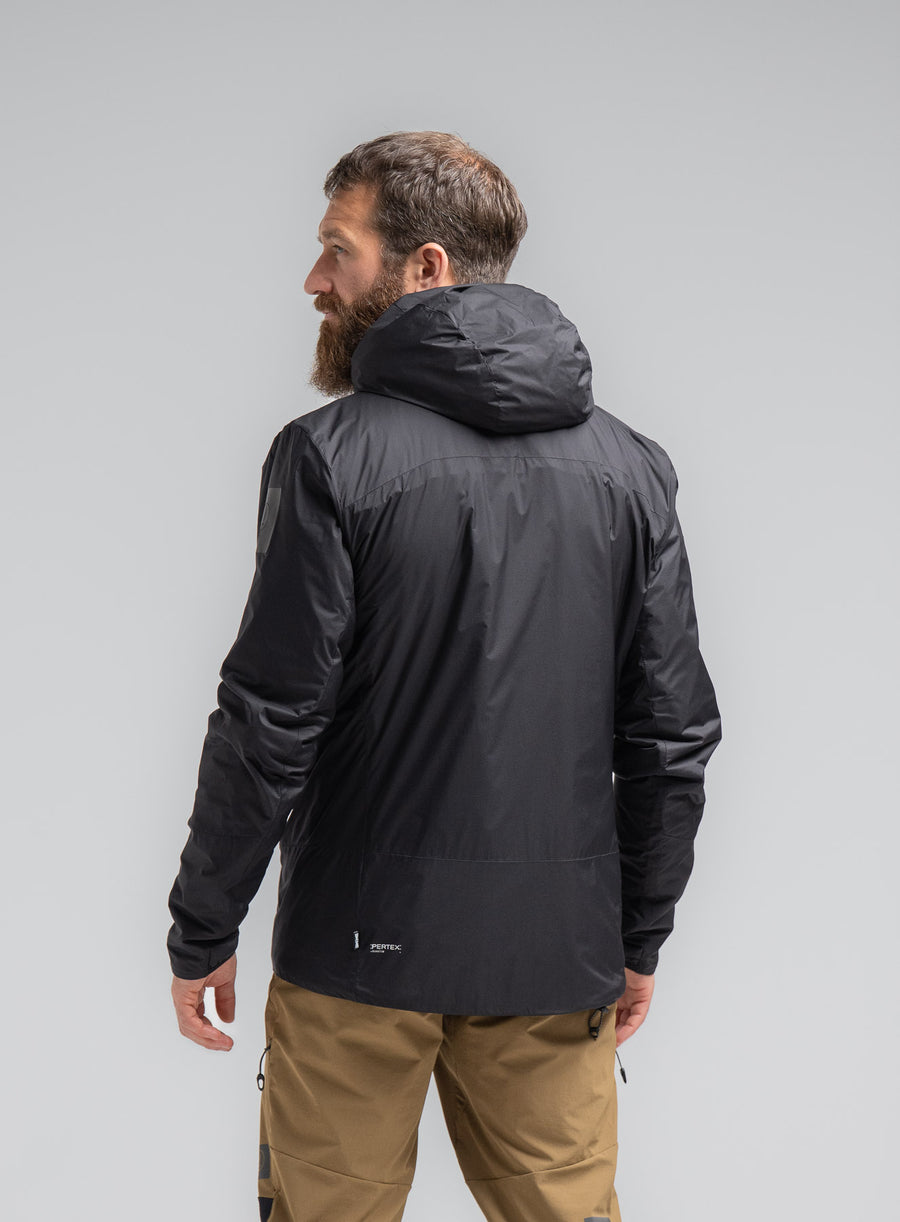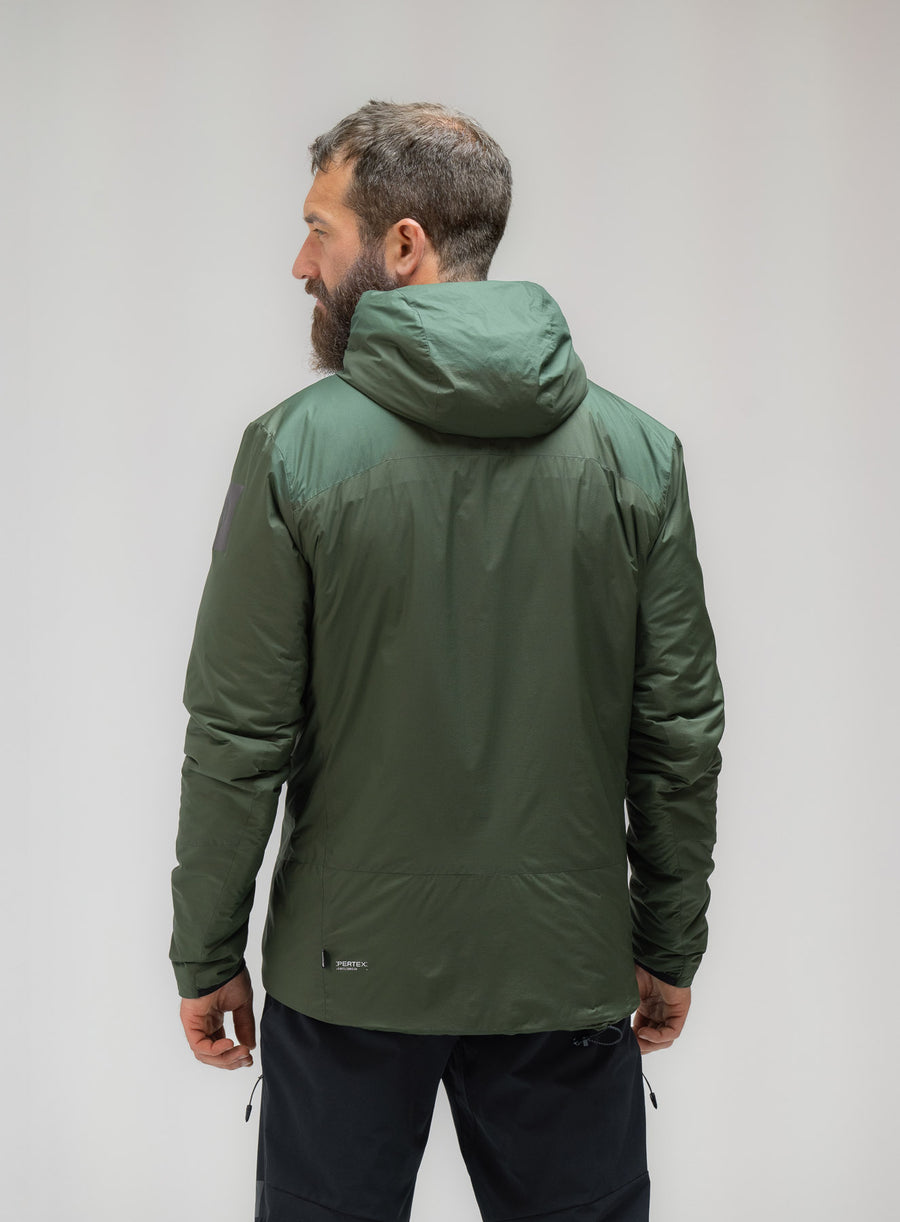

What is a layering system?
A “layering system” is a way of dressing for cold weather that effectively balances the competing needs of insulation, mobility and breathability. This typically consists of three layers, a base layer, mid layer and outer layer, consisting of a “shell” or insulated jacket - although this will depend on the environment, conditions and activity you’re getting involved in.
Get it right and the optimum layering system will keep you warm, dry and comfortable in adverse conditions, allowing you to complete the task at hand. Get it wrong, and you will either freeze or overheat where excessive sweating will cause your body temperature to plummet dramatically in cold climates.

Moisture Management
BASE LAYERS
The most effective barrier against the cold starts with a high quality base layer. Here the key consideration is moisture management, as your next to skin layer you will need something that is capable of wicking sweat away from the body. This will keep you comfortable during periods of high activity and prevent your body cooling too dramatically in cold conditions.
Whether you prefer natural fibres or synthetic, the light feel of our Stealth Merino Layer or require something thicker such as the Siege Base Layer for the extreme cold, our current range offers you the choice of both.

Thermal Regulation
MID LAYERS
A flexible mid layer can be one of the most useful pieces of kit in your expedition armoury. What you need is a mid-layer that can regulate your temperature, keeping you warm during periods of low activity but breathable enough to prevent you overheating as you ramp up the exercise.
Additional qualities like wind and water resistance will help widen a reliable mid-layer to a dependable, year-round layering option. Our range of mid-layers, constructed from carefully selected, smart-synthetic fabrics are designed to do all this and more. Choose from our iconic Phalanx Fleece, best selling Mantra range or our Apex award-winning Centurion Jacket.

Weather Resistance
Shell Layers
A “shell” jacket is typically designed to be waterproof and/or windproof, prioritising hostile weather protection over insulation. The reason being, shell jackets are usually intended for periods of high activity where your body is already generating more heat than when stationary. That being said, it is often advised to layer a shell jacket over an insulated mid layer and/or base layer for additional warmth in cold environments and stop/start periods of activity.
What's the difference?
Hard Shell vs Soft Shell

Hard Shell
Hard shells tend to be of a heavier, more abrasion resistant and rigid build, being designed as the first line of defence against wind and rain.
Shop Hard Shell Jackets
Soft Shell
Soft shell jackets are more stretchy, mobile layers often constructed from a fleece fabric or brushed polyester. Their emphasis is on breathability and they are designed to offer a limited level of water and wind resistance.
Shop soft shell jackets
Temperature Resistance
Insulated Jackets
As the name suggests, “insulated” jackets are primarily concerned with keeping you warm. Packed with down fill or synthetic insulation, insulated jackets will often be windproof but are rarely waterproof - as waterproof fabrics can lack breathability (which you want in an insulated jacket to prevent overheating).
Best left to extreme cold environments, insulated jackets work well for sub-zero temperatures and slower pursuits where your body is not generating as much heat.
ONLY THE ICONIC
WINTER WARMERS


ENGAGE JACKET
Men's black lightweight synthetic insulation jacket
$749 AUD
BLOG POST
INSULATED JACKET BUYING GUIDE: HOW TO CHOOSE A WINTER JACKET
Buying a high quality, insulated jacket is just about the most significant investment you can make when it comes to performance outerwear. As such, it’s important you get it right. The correct insulated jacket will have your back when the temperature drops, keeping you comfortable enough to enjoy your chosen pursuits unaffected by the elements.


Shop Insulated Jackets
Our pick of the best insulation to see you through Winter and beyond.
Shop All
FREE GIFT INCLUDED

MOUNTAIN PRO INSULATED JACKET
Men's brown soft shell alpine jacket
$570 AUD

BEST SELLER

SHROUD
Unisex camo oversized insulated overcoat
$599 AUD


BASTION DOWN JACKET
Men's green insulated down hooded jacket
$899 AUD

FREE GIFT INCLUDED

MOUNTAIN PRO INSULATED JACKET
Men's black soft shell alpine jacket
$570 AUD


BASTION DOWN GILET
Men's black insulated Pertex® Quantum Gilet
$590 AUD

FREE GIFT INCLUDED

MOUNTAIN PRO INSULATED JACKET
Men's green soft shell alpine jacket
$570 AUD
BLOG POST
DOWN INSULATION VS SYNTHETIC INSULATION: WHICH IS BEST?
Not all insulated jackets are created equally and one of the first steps to choosing the right jacket for you is understanding the different types of insulation available.


Carefully selected
Performance Technology


Polartec® Power Grid™️


MANTRA SHEARLING NECK WARMER
$60 AUD


STEALTH TECH WARMER
Black merino wool blend neck gaiter
$70 AUD


NQG - ORIGINAL BUFF®
$50 AUD

RESTOCK LANDED

LONG MOUNTAIN SOCKS
$60 AUD


GUARD BEANIE
Black 100% merino wool beanie
$120 AUD

RECCE BEANIE RAVEN GREY
Dark grey 100% merino yarn beanie
$120 AUD
Outfit Builder
Cover all angles


































